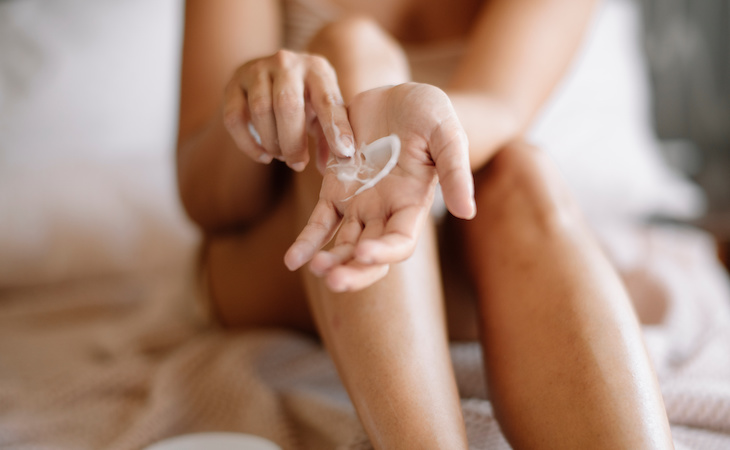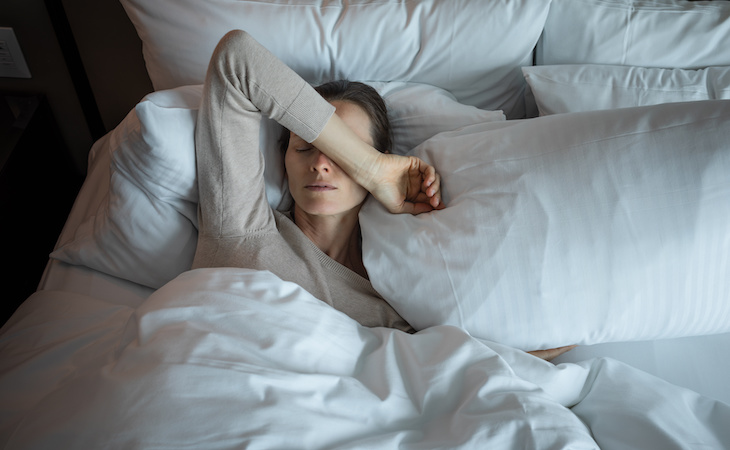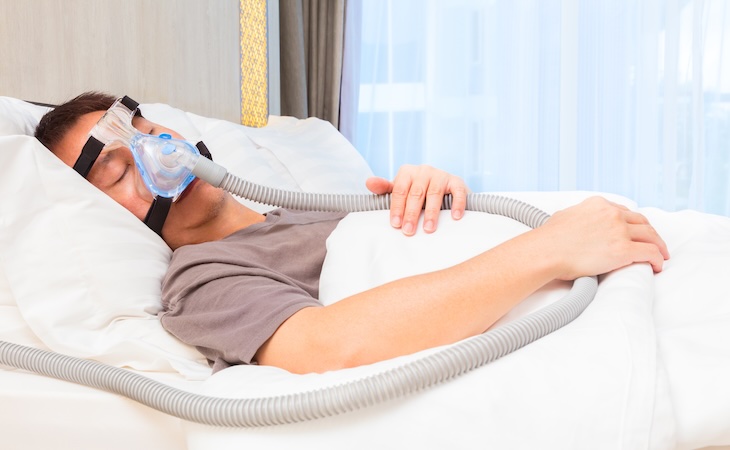For those living with chronic health conditions, getting a good night’s sleep can be challenging. Unpredictable bouts of pain and other related symptoms can be followed by anxiety and tossing and turning all night. Psoriasis is one of those conditions.
Skin irritation and pain often disrupt sleep, leaving you feeling drained the next day. This article explores ways to sleep better with psoriasis and help you get some much-needed shuteye.
What is psoriasis?
“Psoriasis is a systemic inflammatory condition that manifests with skin lesions as well as a multitude of systemic problems including arthritis, metabolic, cardiovascular, and endocrine issues,” explains Jeffrey Fromowitz, MD, board-certified dermatologist in Boca Raton, Fla. “Classically it’s a scaly rash consisting of large red and silver plaques over the extensor surfaces of the body, the scalp, and the buttocks.”
The type of doctor who treats psoriasis and other chronic skin conditions is a dermatologist. To locate a board-certified dermatologist in your area, visit the National Psoriasis Foundation’s Patient Navigation Center.
What are the symptoms of psoriasis?
More than 7.5 million people in the US live with this autoimmune condition. Plaque psoriasis is the most common type and causes chronic symptoms such as:
- Skin inflammation
- Thick areas of discolored skin with scales called “plaques”
- Patchy rashes characterized by dry cracked skin that often bleeds
- Itching, burning, and soreness
- Primarily affects the scalp, trunk, elbows, and knees
Flares may be cyclical and last for weeks or months and then calm down. Some common triggers of psoriasis flares include:
- Stress
- Illness
- Hormones
- Weather, especially cold, dry conditions
- Skin injury
- Smoking
- Excess alcohol use
- Certain medications such as beta-blockers, corticosteroids, and NSAIDS
Recognizing your unique triggers will help you and your doctor create an individualized treatment plan, which may include medications, lifestyle, and dietary changes.
“For limited skin disease, we use topical steroid creams to treat,” says Fromowitz. “However, recently new topicals have been approved, including VTAMA and ZORYVE, which are novel approaches for treatment. For more extensive involvement, or when joints and arthritis are involved, oral or injectable medications are used.”
Psoriasis and sleep: What’s the connection?
Quality sleep often eludes people with psoriasis due to nighttime symptoms such as pain, itching, and burning, which, in turn, can impact mental health and restrict social activities.
The British Journal of Dermatology published a study of nearly 300 participants tying psoriasis to sleep difficulties. The study revealed that 25% of participants with psoriasis had clinical insomnia in contrast to 10.5% not affected with psoriasis.
Further, 54% of participants with psoriasis sleep problems reported being poor sleepers compared to 22% of participants not affected by the condition.
A large study found those with psoriasis and a sleep disorder at a higher risk for stroke and ischemic heart disease. Common sleep complaints include:
- Difficulty falling asleep
- Sleep fragmentation
- Frequent early awakenings
Pruritus (severe itching of the skin), depression, pain, and obstructive sleep apnea also contribute to sleep disturbances for psoriasis patients.
How to sleep better with psoriasis
“By treating psoriasis, you’ll not only eliminate the lesions but also decrease itch and improve sleep,” Fromowitz says. Some tips for sleeping better with this condition include:
- Take a warm (not hot) bath for 20 minutes before bed to help soothe irritated skin and ease nighttime itching.
- Moisturize daily and at night with OTC creams and lotions with ingredients such as coal tar, salicylic acid, and corticosteroids. Studies show these particular ingredients are effective in calming itching in some people.
- Keep a regular sleep schedule and silence electronics a few hours before bed.
- Take a brief afternoon or evening walk to help reduce stress before bedtime and use sunscreen as needed outdoors.
- Avoid coffee, nicotine, and alcohol close to bedtime as they can disrupt sleep.
- Set your thermostat between 60-67 degrees.
- Keep your sheets and bedding clean from irritants and use a gentle laundry detergent if your pajamas cause itching.
FAQs
Does psoriasis affect sleep?
“The itch from psoriasis is vexing and can lead to sleep disturbances,” Fromowitz says. “This creates a debilitating cycle of itching, scratching, nighttime waking, and lack of sleep, which contributes to depression and worsening quality of life.”
Does lack of sleep make psoriasis worse?
Lack of sleep can cause flares and exacerbate symptoms in some patients. It can also lead to stress and become a vicious cycle.
Why does psoriasis get worse at night?
The body regularly releases cytokines as part of healthy immune system regulation. However, more of these molecules are released at night and can increase inflammation and trigger itching.
Do people with psoriasis sleep a lot?
People may sleep more during the day especially if their sleep was disturbed at night. Related conditions caused by the condition such as depression can cause people to sleep more. Studies reveal a significant number of people with severe psoriasis battle some form of depression. This is compounded by the stigma and related loneliness and isolation people living with psoriasis endure.
Additional resources
The American Academy of Dermatology and the National Psoriasis Foundation offer resources and updated research about psoriasis.
The “Psoriasis One to One” program is sponsored by the National Psoriasis Foundation and facilitates matches with a peer mentor for support and encouragement.
Psoriasis is a challenging condition, but you don’t have to face it alone.
Lack of sleep can lead to skin conditions like psoriasis and cause premature aging. Here’s how to get your beauty sleep and protect your skin.




